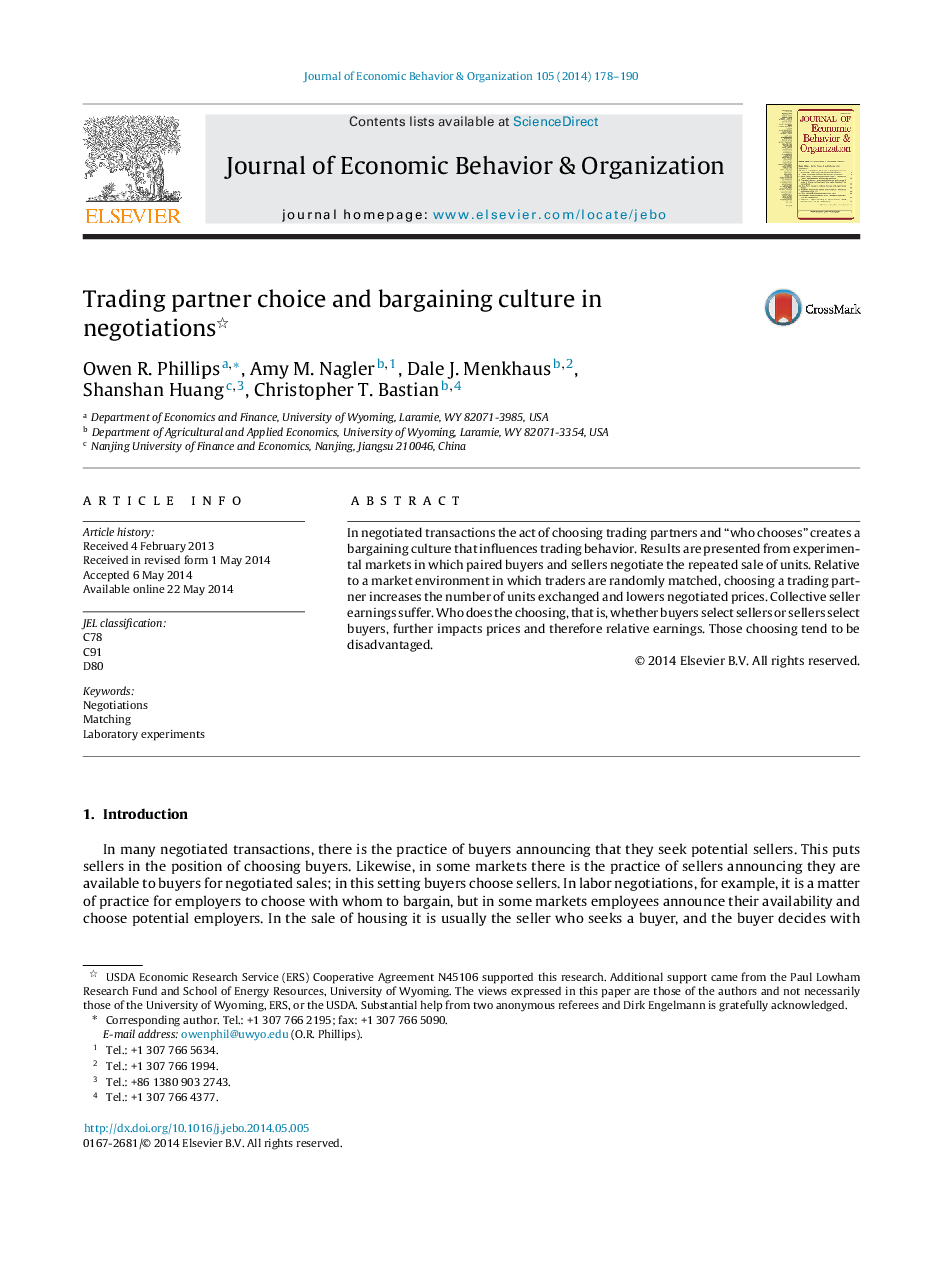| Article ID | Journal | Published Year | Pages | File Type |
|---|---|---|---|---|
| 883507 | Journal of Economic Behavior & Organization | 2014 | 13 Pages |
•Bargainers can choose a counterpart rather than be randomly matched.•Choosing increases the number of units exchanged and lowers negotiated prices.•Equilibrium outcomes diverge from the intersection of supply and demand.•Collective seller earnings suffer.•Those choosing have lower earnings than those chosen.
In negotiated transactions the act of choosing trading partners and “who chooses” creates a bargaining culture that influences trading behavior. Results are presented from experimental markets in which paired buyers and sellers negotiate the repeated sale of units. Relative to a market environment in which traders are randomly matched, choosing a trading partner increases the number of units exchanged and lowers negotiated prices. Collective seller earnings suffer. Who does the choosing, that is, whether buyers select sellers or sellers select buyers, further impacts prices and therefore relative earnings. Those choosing tend to be disadvantaged.
